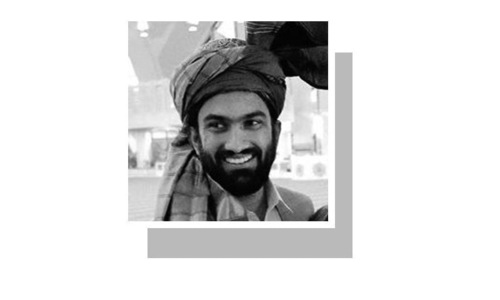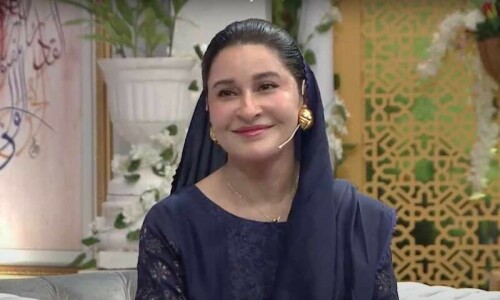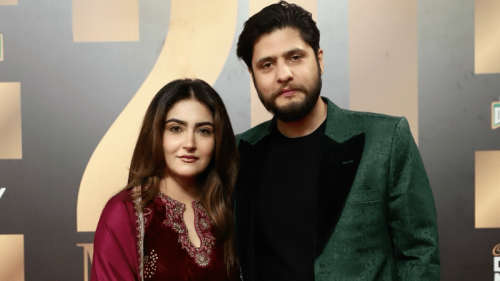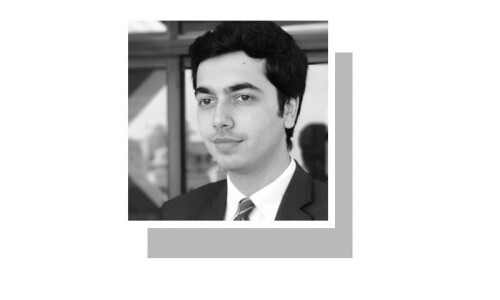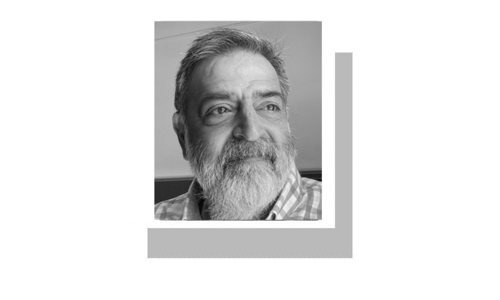AS the US election approaches, a question dominates the news cycle: how will Muslim Americans vote? Muslims comprise one per cent of the US population, but are a key constituency in hotly contested states such as Michigan and Pennsylvania. They are single-issue voters this year — Gaza.
American Muslims are dismayed by the Biden-Harris administration’s handling of the horrific war in Gaza, and feel dehumanised by Democrats’ disdain for the plight of Palestinians. But they have not forgotten former US president Donald Trump’s ‘Muslim ban’ and the Republicans’ inherent post-9/11 Islamophobia. Will they choose the lesser of two evils, or walk away from the process?
Polling suggests around 29.4pc will vote for Kamala Harris. This is bad news for the Democrats — 65 to 80pc of American Muslims voted for Hillary Clinton and Joe Biden in 2016 and 2020, while 80 to 92pc voted for Barack Obama in 2008 and 2012. Muslim Americans who reject Harris may vote for Trump or a third candidate or abstain altogether.
Muslim Americans’ voting predicament may strike a chord for Pakistan’s liberal left, which is facing criticism for failing to push back against anti-democratic forces, most recently manifest in the passage of the 26th Amendment. The more captured our state institutions are, the less democratically minded people engage with them. Those who participate in the system are seen as complicit in its degradation. But opting out is tantamount to surrendering our democracy. What’s a liberal to do? Perhaps we can learn some lessons from Muslim Americans.
Muslim Americans respect the power of their votes.
Don’t stop engaging: Muslim Americans respect the power of their votes. Their electoral handwringing is informed, grounded in a detailed understanding of both sides’ policies.
Don’t fear debate: The Muslim American constituency’s views are divided, as captured in a Wisdom of Crowds debate featuring Shadi Hamid and Haroon Moghul. Hamid is stifling the urge to punish the Democrats for supporting Israel’s atrocities in Gaza. He’s voting for Harris to minimise the overall harm to US democracy that would result from a Trump victory, and because he believes that pro-Palestine voices could find space in a Harris administration and continue to fight from within the system. Moghul, on the other hand, plans to abstain, because he cannot in conscience support a party that has facilitated war crimes.
The commentators disagree, but they’re still talking to each other, and remain focused on the shared goals of defending Palestinian rights and strengthening US democracy. Pakistanis who seek the withdrawal of the military from public life are polarised and critical of each other’s approaches. They would benefit from constructive debate and collaboration.
Think in terms of institutions rather than individuals: Moghul’s criticism of the Democratic Party is largely grounded in principle — the idea that the party is not obeying the rules of democracy. Americans have not voted for the US’s growing involvement in the Middle Eastern conflict and, in fact, oppose foreign interventions. The Democrat policy over the past year has even ignored its own members’ preferences (77pc oppose the US sending arms to Israel). Focusing on institutions and systems enables sub-groups to identify common goals, rather than fragment on the basis of individual preference.
Go local: Moghul won’t vote for either presidential candidate, but will support local and state-level candidates. He’s rejecting party leaders, not the democratic system. In Pakistan too, the best counter to elite state capture is to revitalise local government. This must be a key priority of democracy activists.
Think long-term movement not short-term victories: In their failure to influence the US’s Middle East policies, American Muslims are realising they have not, in Hamid’s words, created “countervailing incentives” to respond to “the structural incentives that reward pro-Israel positions”. This despite the recent political ascendancy of American Muslims: Keith Ellison became the first Muslim Congressman in 2006 — by 2016 US representatives included Somali refugee Ilhan Omar and second-generation Palestinian Rashida Tlaib.
In Pakistan, we rally around individuals elevated as democratic saviours. Ours is a politics of emotion, not organisation. The hard slog of building a political movement does not come easy.
This is because we are not trained on building democratic systems from the outset. As our state institutions are weakened we should go back to the basics: teach civics at school and empower student unions at university campuses. Systems are best changed from the bottom up, and from within. No matter who wins the US election, Muslim American political participation should endure.
The writer is a political and integrity risk analyst.
X: @humayusuf
Published in Dawn, October 28th, 2024




